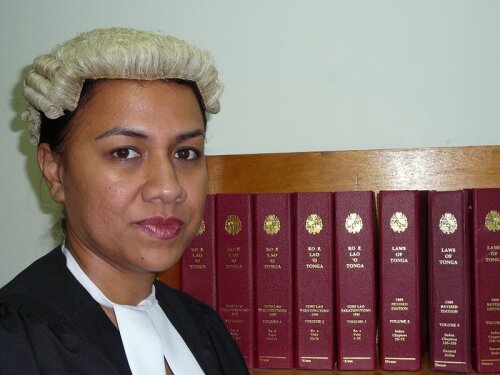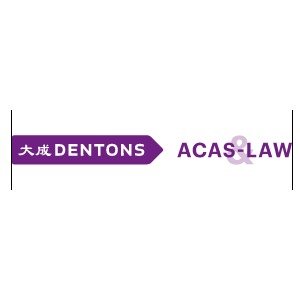Best Telecommunications and Broadcast Lawyers in Port Harcourt
Share your needs with us, get contacted by law firms.
Free. Takes 2 min.
List of the best lawyers in Port Harcourt, Nigeria
Nigeria Telecommunications and Broadcast Legal Articles
Browse our 1 legal article about Telecommunications and Broadcast in Nigeria written by expert lawyers.
- Telecommunication Services in Nigeria: The Available Legal Rights and Remedies to Customers (Subscribers)
- Telecommunications services are essential to modern society, which facilitates global communication, business, and connectivity. In recent years, Nigeria's telecommunications business has developed and expanded greatly, owing to technology breakthroughs and regulatory reforms. However, in addition to these advancements, consumers frequently face issues such as network congestion, call dropouts, and insufficient... Read more →
About Telecommunications and Broadcast Law in Port Harcourt, Nigeria
Telecommunications and Broadcast Law in Port Harcourt, Nigeria, governs various aspects of broadcasting and telecommunications services, networks, and equipment. This field is regulated by the Nigerian Communications Commission (NCC) and the National Broadcasting Commission (NBC), with both federal and local laws playing significant roles. The field encompasses laws and regulations relating to broadcast licensing, IP rights, broadband policies, and terms of services provision, to name a few aspects.
Why You May Need a Lawyer
Legal advice is often essential in the Telecommunications and Broadcast sector due to its intricate technical and regulatory nature. You may require a lawyer if you are seeking to acquire a broadcasting license, entering into contracts and negotiations, navigating litigation issues, or ensuring compliance with both federal and local regulations. In the event of a dispute, a lawyer can also help protect your interests and rights.
Local Laws Overview
Regarding local laws relevant to Telecommunications and Broadcast, the Nigerian Communications Act 2003 and the National Broadcasting Commission Act are the two most critical Acts. They mandate the NCC and NBC respectively to regulate the field in the interest of implementing efficient communications services and achieving national broadcasting objectives. These Acts encompass topics such as operator licensing, spectrum allocation, infrastructure sharing, consumer rights and protection, dispute resolution, etc.
Frequently Asked Questions
What is the role of the NCC?
The NCC or Nigerian Communications Commission is responsible for regulating telecommunications in Nigeria. This includes granting licenses, setting rates, and ensuring competition and quality service.
What laws govern broadcasting in Nigeria?
The National Broadcasting Commission Act is the primary law governing broadcasting in Nigeria. It outlines the terms of broadcasting, advertising, and the licensing of television and radio stations.
Who can apply for a broadcast license?
Any person (individual or corporate entity) who is a citizen of Nigeria or a company registered in Nigeria can apply for a broadcast license.
What happens if someone breaches telecommunications or broadcasting laws?
If someone breaches telecommunications or broadcasting laws, they may face penalties like fines, imprisonment, or cancellation of licenses, depending on the severity of the breach.
Can a lawyer assist in business negotiations within this sector?
Absolutely, given the technical nature of the sector, a lawyer can guide you through contract negotiations, ensuring you understand and meet your obligations, thereby protecting your interests.
Additional Resources
For additional resources, consult the websites of the Nigerian Communications Commission (NCC) and the National Broadcasting Commission (NBC). These bodies provide comprehensive guides on licensing procedures, regulation updates, consumer rights, and other useful materials. Additionally, the Federal Ministry of Communications and Digital Economy provides regular updates on policy direction in the digital space.
Next Steps
If you need legal assistance in Telecommunications and Broadcast, consider contacting a lawyer who specializes in this area. They can guide you through the legal framework, help identify your needs, and assist in fulfilling them legally. Additionally, joining local telecoms and broadcasting trade associations can provide you with helpful advice, resources, and networking opportunities.
Lawzana helps you find the best lawyers and law firms in Port Harcourt through a curated and pre-screened list of qualified legal professionals. Our platform offers rankings and detailed profiles of attorneys and law firms, allowing you to compare based on practice areas, including Telecommunications and Broadcast, experience, and client feedback.
Each profile includes a description of the firm's areas of practice, client reviews, team members and partners, year of establishment, spoken languages, office locations, contact information, social media presence, and any published articles or resources. Most firms on our platform speak English and are experienced in both local and international legal matters.
Get a quote from top-rated law firms in Port Harcourt, Nigeria — quickly, securely, and without unnecessary hassle.
Disclaimer:
The information provided on this page is for general informational purposes only and does not constitute legal advice. While we strive to ensure the accuracy and relevance of the content, legal information may change over time, and interpretations of the law can vary. You should always consult with a qualified legal professional for advice specific to your situation.
We disclaim all liability for actions taken or not taken based on the content of this page. If you believe any information is incorrect or outdated, please contact us, and we will review and update it where appropriate.

















